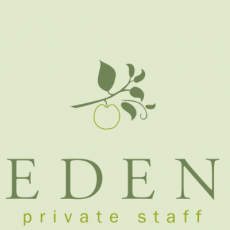Environmental Tips for Domestic Cleaning and Hygiene
Greener Cleaning
Greener Cleaning Products
Cleaning products are necessary for maintaining attractive and healthy conditions in the home and workplace. In addition to the obvious aesthetic benefits of cleaning, the removal of dust, allergens, and infectious agents is important to maintaining a healthy indoor environment.
However, cleaning products are not benign and as they are chemical formulations they can present several health and environmental concerns. However, scant heed is often paid to the hazardous symbols they carry and as such we don’t think about cleaning products as chemicals.
Take a peek in your bathroom or kitchen cupboard today & you will probably find a lot of different products for home cleaning. The products we chose to buy is influenced by brand loyalty and advertising. The household cleaning industry is a very lucrative business and across Europe it’s now estimated to be worth almost €50 billion.
Of that market, approximately 50% comprises of laundry products.
Greener Cleaning
So your motivation to switch from conventional store bought products may be based on wanting to save money or wanting to limit the amount of chemicals you use in your home. Whatever the motivation we hope you find the ideas and alternative suggestions included in this guide useful.
USEFUL TIP!
MEASURE IT OUT
This one is a great money saver as well: The other tip to “green cleaning” and preventing house-hold hazardous waste is to use less product (and maybe a little more effort). Think about it, when was the last time you followed the dosage instructions on your cleaning & laundry products? Most of us use products liberally, paying scant heed to the manufacturers’ recommendations.
Diluting down products will also make them last a lot longer which will save you money as well as minimising the impact of their use on the environment.
So what are the alternatives to store bought cleaning products?
Learning to clean from scratch, or at least without purchasing a commercial product, can truly work if you take time to understand a bit about the chemistry behind how the materials work.
It can also be very satisfying to know the exact ingredients of your cleaner as well as often being cheaper.
Essentially there are five ingredients we recommend to be as effective as commercial products. These five ingredients were used by generations before us to carry out household chores before cleaning products became readily available & marketed. These five wonder ingredients are also very cheap, so switching from a store bought chemical to a home-made recipe will also hope- fully save you money. The other good thing about our wonder products is that they each have multiple uses and can be applied as you will see to many maintenance and cleaning chores in your home.
What are these wonder ingredients and where will you find them?
Baking Soda also known as Bread soda or Bicarbonate of Soda
A commonly available mineral full of many cleaning attributes, baking soda is made from soda ash, and is slightly alkaline (its pH is around 8.1; 7 is neutral). It’s a great cleaner, deodoriser and mild abrasive to use in household cleaning. It neutralises acid-based odours in water, and adsorbs odours from the air. So when you are next in the supermarket look for it in the Home Baking aisle.
Detergent also known as Washing Soda
A chemical neighbour of baking soda, washing soda (sodium carbonate or Detergent) is much more strongly alkaline, with a pH around 11; it’s a product which contains no phosphates, enzymes or bleach. It is often referred to as an effective but gentle cleaner, but you should wear gloves when using it because it is caustic in nature. Washing soda cuts grease, cleans petroleum oil, removes wax or lipstick, and neutralises odours in the same way that baking soda does. It’s very cheap approximately €1.20 per kg, which will do a lot of cleaning. You will find Detergent in the laundry/cleaning aisle in the supermarket.
The other great thing about making up a solution of Detergent to clean with is that you can decide the strength you need for each task. As a general rule of thumb:
- A mild solution would be approx 1 tablespoon of Detergent to 1.5 cups of water
- A regular solution would be half a cup of crystals to 1.5 cups of water
- A strong solution would be 1 cup of crystals to 1.5 cups of water
White Vinegar and Lemon Juice
White vinegar and lemon juice are acidic — they neutralise alkaline substances such as scale from hard water. Vinegar will help tackle all those ‘tough’ tasks where we might ordinarily reach for bleach or a strong chemical cleaner. Acids such as vinegar dissolve greasy build-up, eat away tarnish, and remove dirt from wood surfaces. Again, it is very cheap and has a multitude of uses.
Salt
Salt works as an effective yet gentle scouring agent. It is also great in synergy with other ingredients such as vinegar and lemon juice to boost cleaning and deodorising action.
The Kitchen
Kitchen Cleaning
Unfortunately, the kitchen in most households requires very regular cleaning and for most of us that means on a daily basis. It’s often the room that is most used in the house with constant traffic to and from it and cooking which in itself can be messy as well as creating odours and grease. Here are some ideas to get you started and once you have tried these out and want to advance on to even more greener cleaning a simple internet search will turn up thousands of tips, ideas and recipes.
Worktops & General Cleaning Using Vinegar
Vinegar is mildly acidic so will give an anti-bacterial clean to work- tops and sinks. White distilled vinegar is the best type to use and can be purchased very cheaply. Just wipe the neat vinegar on with a clean cloth and buff to shine. Vinegar can be used neat but also can be made into a cleaning spray with one part of vinegar to two parts of water. It’s also very effective as a scrub by mixing with either salt or bread soda. For streak free windows vinegar works a treat and is easily buffed off with scrunched up newspaper.
Kitchen Bin
Baking Soda is an effective odour eliminator. A sprinkle in the bottom of bins keeps them smelling fresh.
Pots, Pans & other equipment:
Baking Soda will clean plastics without scratching them, while removing any nasty smells (very handy for sandwich boxes which have been ‘forgotten’ in a bag under the stairs!).
Baking soda can be made into a paste using 3 parts soda to one part water, or alternatively it can be used by sprinkling on a damp cloth, wiping off & rinsing. To remove dried or burnt on food liberally sprinkle on baking soda, add some boiling water and leave to soak over- night. The food debris should be much easier to remove the following day.
Cleaning Sinks with Salt
Salt is very abrasive and can be used to remove stains from ceramic and stainless steel sinks. Rust marks on stainless steel sinks will disappear when rubbed with a little salt and lemon juice. Leave for a few hours then rub off to remove the rust stain.
Cookers, Ovens & Hoods as well as other stuff with Baking Soda!
Bicarbonate of soda (baking soda or bicarb) is granular so it can be used as a scrub to clean really tough stains or dried in dirt. Mixed with vinegar, bicarb cleans even the grimiest ovens and baked on grease.
CASE STUDY:
The Tourism and Hospitality department have stopped using degreaser and sanitiser in one of our kitchens for a trial period of 12 weeks. We have replaced it with white vinegar, lemon juice and a few drops of tea tree oil. The same cleaning process that all students have been trained in, stayed the same. Both kitchens were swabbed for bacteria and both came up negative. More testing will be carried out.
Windows, Walls & Carpets
Frames
Paintwork (and uPVC window frames) will brighten after a wipe-down with a regular solution of Detergent in warm water. You can prepare bare wood for painting too with a regular solution.
Olive Oil Furniture Restorer
3 parts olive oil to 1 part vinegar makes great furniture polish for wood.
2 parts olive oil to 1 part vinegar makes a nourishing feed and polish for leather (furniture, boots, coats, etc).
In both cases shake the oil and vinegar in a jam jar till it emulsifies and resembles a salad dressing. Rub on with one soft clean rag then buff off the excess with another. Make sure you remove all the excess to prevent your sofa becoming sticky! You don’t need much to keep wood and leather looking fresh.
Blinds
A wipe with a regular solution of Detergent will brighten Venetian blinds, and help to shrug off dust.
Windows/Glass
Vinegar is excellent for cleaning windows, buff off with scrunched up newspaper.
Carpets
Bicarbonate of Soda (baking soda) is also good used dry to lift stains and odours from carpets (e.g. red wine) and marks from surfaces and very good for cleaning shower curtains.
The Bathroom
Tiles
Clean wall tiles with a regular solution of Detergent or use Liquid Detergent to leave them clean and sparkling. Detergent will bring new life to grouting too.
Freshen them up and get rid of that ‘greasiness’ on sponges, flannels and combs with a soak in a hot regular solution of Detergent.
Pipes
Use a strong hot solution of Detergent to help keep waste pipes clean and fresh. A regular flushing will help keep waste pipes clear of blockages.
Bowls or Sinks
Salt is antibacterial and another great ’scrub’ item. Salt water can be used to disinfect toilet bowls or sinks.
Flush some Detergent down the loo to clean and freshen, and to help prevent blockages. Use a regular solution to clean toilet brushes too.
The Patio & Outdoors
Drains & Gutters
Drains, gutters and waste pipes - Pour half a bag (approx 500g) of Detergent directly down the drain and leave for ten minutes before rinsing with very hot water to keep them clear of grease and blockages. Wash gutters with half a cup of Detergent per litre of water to remove rotting leaves, etc.
Decking
To clean outdoor wooden floors and decking, dissolve a medium solution of Detergent in hot water and mop as usual. To prepare wooden flooring for varnishing or painting, make sure that all debris and flakes are removed and mop with a strong Detergent solution.
Barbecue
Barbecues, grills and utensils - Make up a medium solution of Detergent, soak grills and utensils before cleaning with a wire brush. For barbecue body casings, apply with a sponge or brush and leave for an hour before washing off with a sponge soaked in the solution. Rinse off with clean water. A wire brush or scouring pad will help remove burnedon grease and food.
Moss
To clear moss and rotting leaves and to get rid of slime on drives, patios & steps, sprinkle Detergent directly onto the area and leave overnight before brushing off with a stiff broom and plenty of water.
DIY Air Fresheners
Fresh Air
Open your windows and let in the fresh air!
Home-made spray
For an easy air freshener, combine a few drops of vanilla, almond or other extract with a cup of water, and spritz the mixture in the air with a spray bottle.
Carpet Fresh
Before you vacuum, squeeze a fresh lemon or lime into your vacuum bag. This will freshen both the bag and the carpet.
Essential Oils
Essential oils (while not cheap but you only need a drop or two) sprinkled on a cloth or added to water on a saucer or sprayed through a mister is particularly effective.
Spice it up
Simmering any spice, herb or fruit in water will create a very pleasant natural aroma.
Be adventurous and see which you like best such as clove, cinnamon, nutmeg, vanilla, apple peel, ginger, rosemary, basil. Never throw away your citrus zest. Simmer it in water with a teaspoon of cinnamon, and the aroma will spread throughout your house.
Recipe
Mix one ounce of cinnamon sticks with one can whole cloves and one can allspice in a Ziploc bag. Take one teaspoon of the mixture and mix it with one cup of water on the stove. Let the mixture simmer for a spicy potpourri.
Magic Vinegar
Simmer white vinegar on low in a small saucepan on the hob for 30-45 minutes.
As it evaporates, it will help dissipate other smells.
This is a good option for particularly strong smells
Laundry & Clothing Care
Laundry
Mix lemon juice with water to whiten whites and brighten colours in a low degree wash cycle.
By adding half a cup of Detergent to your wash load you will soften the water and need to use less of your usual detergent.
Remove heavy stains on cottons or linens including grease by soaking in a strong solution of Detergent or use Liquid Detergent directly on the stain. Detergent can shift grease, blood, ink, tea and coffee stains.
Red wine and food stains can be treated with a strong solution of Detergent. Large spillages can be treated by applying dry crystals directly to the stain, followed by rinsing in clean water. Use Detergent for grass stains too.
Sunlight
Sunlight acts as a bleaching agent, it’s excellent for whitening infants’ nappies and tea towels and it’s free but not always available! However, even on a cloudy day there is still a bleaching effect, although at a lower rate.
Tea tree oil
Tea tree oil is both antiseptic and disinfectant; it effectively eliminates mould and mildew or can be diluted as a deodoriser for musty clothing.








 Vectora Design
Vectora Design